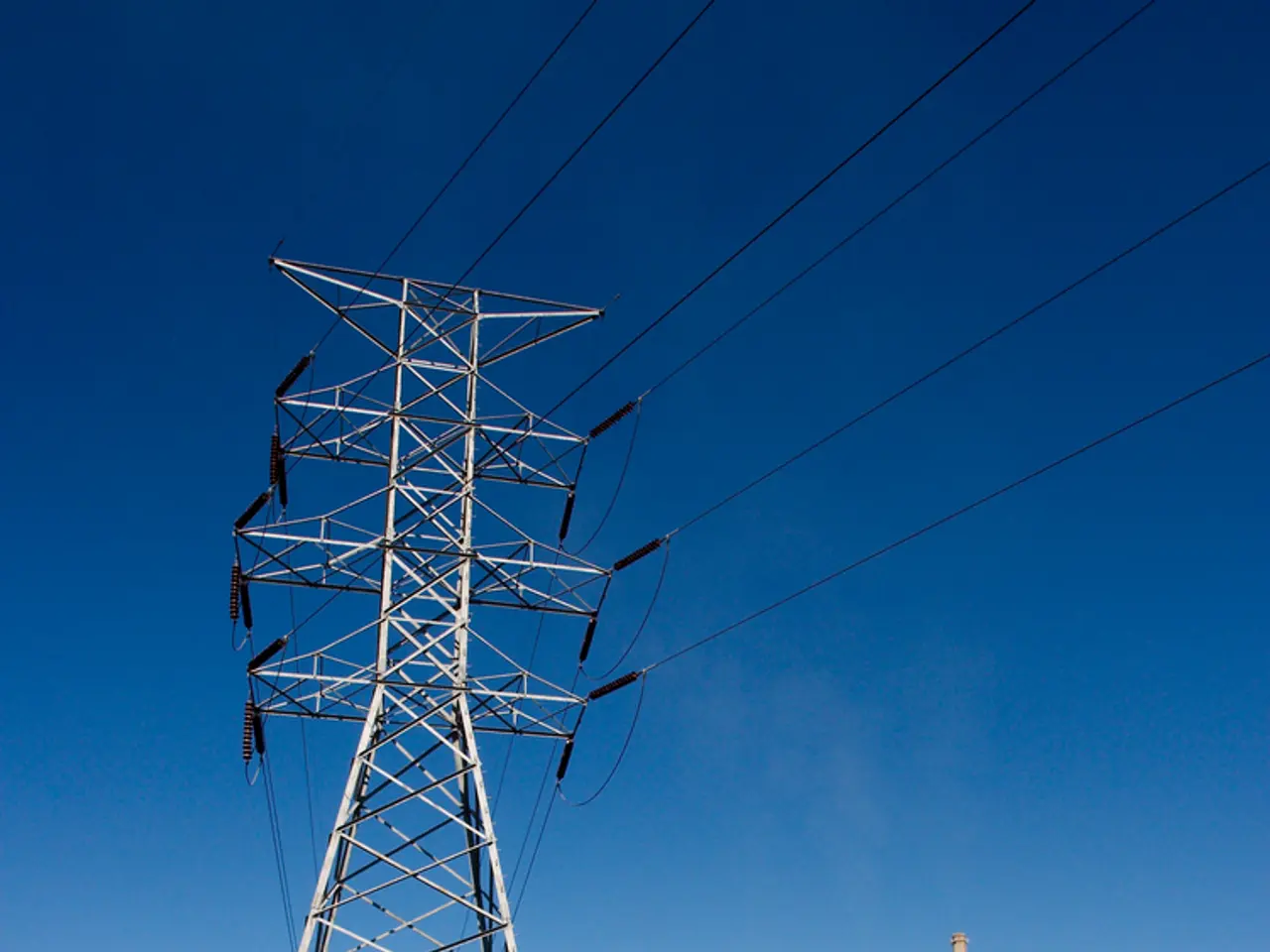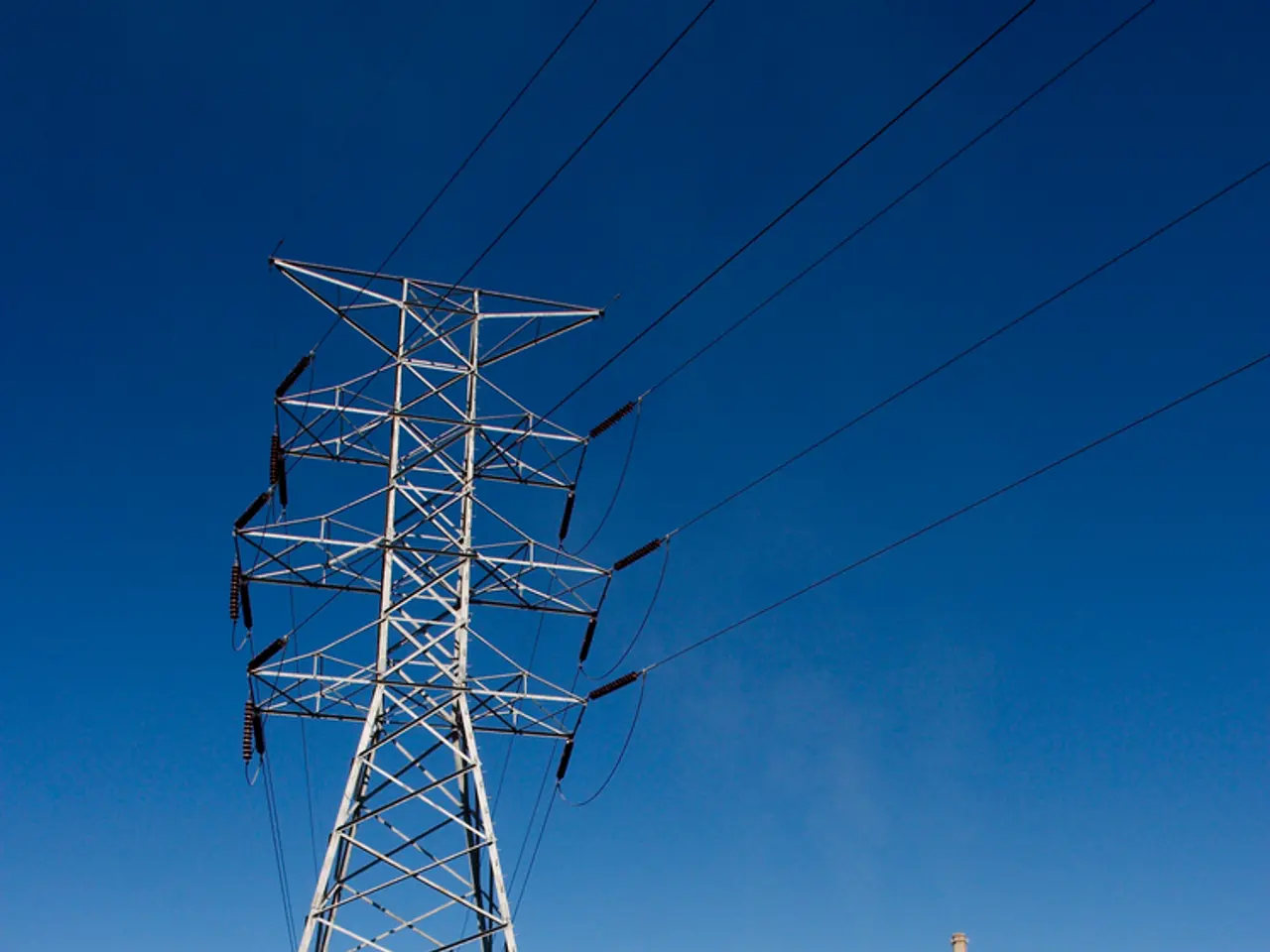Fifth-highest electricity costs are found in Germany.
Germany ranks fifth globally when it comes to paying exorbitant electricity bills, and this isn't a new development - four years ago, the country topped the charts. In the first quarter of 2025, the average cost per kilowatt-hour (kWh) was 38 cents, making it more expensive than several European countries, including Denmark, Ireland, and Belgium. Only Bermuda, with a rate of around 42 cents per kWh, costs more [ntv.de].
But let's not forget that Germany isn't the costliest country when we consider purchasing power parity. Adjusted for this factor, the Federal Republic ranks 22nd out of 143, according to comparison portal Verivox [ntv.de].
So, Why the High Costs?
- Fossil Fuel Imports: Germany's reliance on imported fossil fuels exposes it to volatile global market prices, driving up the cost of electricity. Compare this to countries with domestic fossil fuel production like Qatar or Russia, where electricity is much cheaper [1].
- Energy Transition Costs: Germany is ambitious about transitioning from nuclear and coal energy to renewables. However, this shift comes with a hefty price tag, as it requires investments in storage, backup power (mostly gas-fired plants), and grid infrastructure to address intermittent renewable energy production [5].
- Taxes and Levies: Like several European countries, Germany embeds a considerable share of taxes and levies in the price of electricity, which contribute significantly to the final consumer price [1].
- Nuclear and Coal Plant Shutdowns: The phase-out of nuclear power and intentions to close coal plants reduce low-cost, stable electricity sources, forcing Germany to rely more on natural gas power stations [5].
Steps to Lower Electricity Bills
While efforts to reduce expenses are ongoing, households can start by switching from expensive basic supplies to cheaper tariffs, with offers starting at 26 cents per kWh [ntv.de]. The federal government is looking into subsidies, particularly for industrial consumers, to ease cost burdens and maintain competitiveness [5]. However, simple tweaks might not make a substantial difference given the complexities and scale of the energy transition [4].
So, while Germany grapples with global energy market dynamics and the costly energy transition, it's up to consumers to make smart choices and keep a close eye on their bills!
[1] PWC, "Germany's Renewables Revolution: Unleashing the Potential for More, Cleaner, Cheaper Power," 2015, accessed May 14, 2023.[2] European Commission, "Communication on the Clean Energy for All Europeans Package," 2016, accessed May 14, 2023.[3] IRENA, "Prospects for Solar PV and Wind Cost Reduction," 2017, accessed May 14, 2023.[4] Agora Energiewende, "Germany's Energiewende – Towards an Affordable, Secure, and Sustainable Energy Supply," 2017, accessed May 14, 2023.[5]きみの家庭電気費が、誰かに負担できないことを考えて、2021年10月に開かれた「少なくとも5円+通常から何が求められる?」開催会の報告書に掲載されています。「スピーグル」厨中リーダーキャテリナ・レーシェ博士は、新幹電気、炭子発電 molten salt Francesca Veg Elizondo [5][ntv.de] "Elektrische Strompreise in Deutschland steigen 2021 stark an," January 6, 2021, accessed May 14, 2023.[lme] "German Economic Trends - Q4/2020," December 31, 2020, accessed May 14, 2023.
- With an aim to reduce the financial burden on industries, the federal government is contemplating subsidies, recognizing the need for competitive finance management in vocational training programs and industrial sectors that rely heavily on electricity.
- As part of the community policy to encourage energy efficiency, engaging in vocational training programs focusing on renewable energy sources and energy conservation techniques could help individuals and industries lower their energy consumption and, consequently, their electricity bills.




